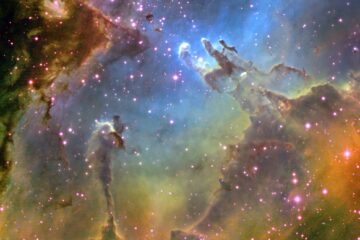One year or 365.25 days, the length of time it takes the Earth to complete one orbital path around the Sun and the length of time American astronaut Scott Kelly and Russian cosmonaut Mikhail Kornienko will spend out of this world. Launching on 27 March 2015, these two men will spend a year on board the International Space Station testing the limits of the human body and mind in a bid to prepare humans for longer journeys into space, this is twice as long as typical US missions to space.
The “One Year Crew” has specific objectives to their mission all in a bid to find out if the human body and mind is capable of long missions to an asteroid, back to the Moon or even to Mars in the future. Part of their mission is to further investigate the effects of life in a microgravity setting and the physical effects of their task on their bones and muscles. They will also monitor the surrounding environment of the Space Station during this longer timeframe. Investigating the effects on their bodies in terms of food digestion, their metabolism and bacteria level will also be part of the remit. There are some concerns that with the changes in pressure and life in the weightless surroundings that this can cause damage to their eyes so ensuring eye health will also be very important. Finally there mental health will be monitored very closely to ensure the crew are not experiencing signs of depression in their confined, isolated new home.

Image: A mission of new records. Longest time in space by Gennady Padalka (centre), Longest time spend on-board the International Space station (Scott Kelly left and Mikhail Kornienko right). Image taken during training in Star City, Russia. Credit: (NASA/Bill Ingalls)
American astronaut Scott Kelly will also be involved in an additional part of the study. His identical twin brother, astronaut Mark Kelly will be completing the same tests as Scott but here on Earth. This will allow scientists and researchers to compare results from the brothers who share the same genetics but are in a different environment for the year and will focus on their physiology, behaviours, dietary differences and the microorganisms within the body.

Image: Astronaut Scott Kelly during a pre-launch check on board Soyuz TMA-16M spacecraft. (Image credit: NASA/Victor Zelentsov)
One year is not the longest people have stayed in orbit. On-board the Russian space station Mir four cosmonauts clocked up more than a year in space in the 1980s and 1990s. (1942-) has the record for the longest single space flight of 437 days or 14 months in space in 1995. However he spent 677 days in total in space with an earlier mission in 1989. Sergei Krikalev (1958-) over his six space flights currently holds the record of longest time in space having spent over a whopping 2 years in space or 803 days in orbit, longer than any other person. Joining Kelly and Kornienko on board the Soyuz rocket is cosmonaut Gennady Padalka. He will spend six months on the ISS before returning to Earth. After this mission is complete Padalka will have beaten Krikalev’s record of most time in space, having already logged 710 days in space before this six month mission. This mission is the first time an American will have endured a year in space.
Scott Kelly has already spent 180 days in space from his first mission as Shuttle Discovery pilot in 1999. Mikhail Kornienko has spent logged 176 days in space. Both astronauts have described each other as friends and they will be joined by other crews throughout the mission. All three of the crew members launching this week to the International Space Station are veteran astronauts and will be well aware of the change in lifestyle they are about to experience. A lot of the research into life in space has focused on the negative impact on the body and on life but there is one very positive impact that the majority of astronauts returning to Earth report experiencing and that is a greater appreciation of the Earth and its beauty as well a greater gratitude towards nature and other people.
So after a year in space, will humans be better equipped to deal with a long duration space flight? Only time will tell, but this week will see the beginning of a new era in space flight and these two men Scott Kelly and Mikhail Kornienko will be the first test subjects using state of the art technology to really work out if humans will be able to continue to explore further into the vastness of space.
(Article by Martina Redpath, Senior Education Support Officer)




0 Comments